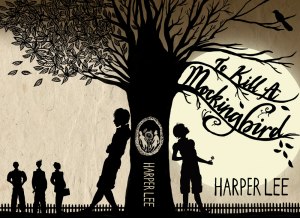Blog Archives
Classic Southern Fiction Writers
Posted by WCPLtn
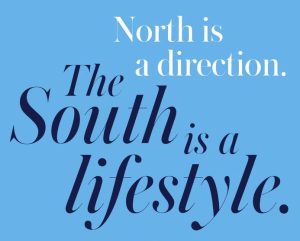 by Chelsea Bennett, Reference Department
by Chelsea Bennett, Reference Department
Nashville is changing. It’s changing A LOT. And so is our little town of Franklin, one of Nashville’s major suburbs. Since 1980, Franklin’s population has increased more than 500%, which you’ll have no trouble believing if you want to go anywhere during morning rush hour – or lunch hour – or evening rush hour – or a Saturday – you get the gist. Whereas we used to be the “#1 small town in Tennessee,” we are now ranked as the 7th largest city in the state!
While Franklin has maintained its classic southern charm, we’ve also welcomed a healthy number of transplants from all over the USA, and from other countries, as well. With that in mind, I thought it would be fun to talk about classic Southern Fiction writers. These writers have played an important role in capturing, communicating, and preserving some of the cultural aspects of the South, from the hills of Appalachia to the bayous of Louisiana, and the states in between.
Whether you’re new to the southern states, or you’re a native southerner who wants to get more familiar with a writer who shares your family culture, I hope you’ll find an interesting, new-to-you author by the end of this post.
(As with any society, the South is responsible for both positive and negative contributions to culture. Some of these authors may use racially insensitive language, or potentially upsetting plot points, but I won’t address specifics in this post. If you prefer to avoid literature of this nature, I encourage you to further research these authors and books before you start reading.)
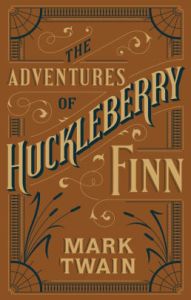 Mark Twain – The Adventures of Tom Sawyer (1876); Adventures of Huckleberry Finn (1885).
Mark Twain – The Adventures of Tom Sawyer (1876); Adventures of Huckleberry Finn (1885).
“All modern American literature comes from one book by Mark Twain called Huckleberry Finn,” wrote Ernest Hemingway in a 1935 essay. William Faulkner called Twain “the father of American literature,” and Twain’s obituary acknowledged him as “the greatest humorist [America] has produced.” Tom Sawyer and Huckleberry Finn deal with boys growing up and adventuring along the Mississippi River in the antebellum South. Twain was known for his use of satire, and both of these books carry with them heavy doses of social criticism.
Kate Chopin – “Désirée’s Baby” (1893); “The Story of an Hour” (1894); The Awakening (1899)
Living in late 19th century Louisiana, Kate Chopin denied being a feminist or a suffragist. But she viewed the culture around her with a probing eye. With a knack for clear, compassionate observation, and the boldness to write honestly – even if some subjects were deemed controversial, even immoral, at the time – Chopin nonetheless helped pave the way for 20th century feminist authors. The Awakening, about a young woman who determines to discover her identity beyond “wife” and “mother” despite societal conventions, is a staple in English literature classes. She also published several important short stories.
William Faulkner – The Sound and the Fury (1929); Absalom, Absalom! (1936)
Mississippi native William Faulkner created the fictional Yoknapatawpha County, placed it in his home state, and set most of his short stories and novels there. This allowed him to explore a variety of social groups within the same locale. He is known for including passages of “stream of consciousness” writing his stories, where he eschews proper grammar and punctuation in an attempt to convey the state of a character’s mind. Faulkner’s novels can be considered allegories for southern history. He was awarded the Nobel Prize for Literature in 1949.
Zora Neale Hurston – Their Eyes Were Watching God (1937)
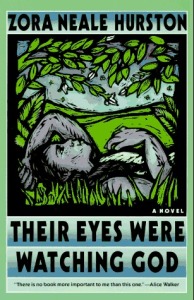 In addition to her works of fiction, Zora Neale Hurston collected African-American folk tales, published anthropological studies on voodoo practices, and wrote plays, non-fiction, and poetry. Their Eyes Were Watching God is her most well-known novel. It explores themes of race, gender roles, and gender inequality. The heroine, Janie Crawford, comes to learn what it means to take ownership of her life, and what it means to be an independent woman in early 20th century Florida.
In addition to her works of fiction, Zora Neale Hurston collected African-American folk tales, published anthropological studies on voodoo practices, and wrote plays, non-fiction, and poetry. Their Eyes Were Watching God is her most well-known novel. It explores themes of race, gender roles, and gender inequality. The heroine, Janie Crawford, comes to learn what it means to take ownership of her life, and what it means to be an independent woman in early 20th century Florida.
Carson McCullers – The Heart is a Lonely Hunter (1940)
Of her craft, McCullers said, “Writing, for me, is a search for God.” Born in Columbus, Georgia (225 miles from Nashville, as the crow flies), Carson McCullers was another author who keenly observed her culture, and translated with great empathy (and perhaps a touch of comedy) the pain and loneliness she saw. Her friend Tennessee Williams summed up “Carson’s major theme: the huge importance and nearly insoluble problems of human love.”
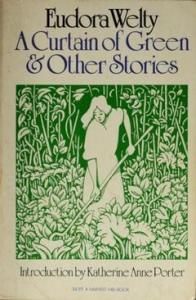 Eudora Welty – A Curtain of Green (1941), The Optimist’s Daughter (1972)
Eudora Welty – A Curtain of Green (1941), The Optimist’s Daughter (1972)
Welty is a much-loved, much-awarded author who lived most of her life in Mississippi. Also a documentary photographer during the Depression era, she often found inspiration in the subjects of her own photographs. A woman ironing clothes behind a post office became the subject of one of her finest short stories, “Why I Live at the P.O.” Some southern authors have a reputation for world-weary cynicism. Welty instead managed to address difficult subjects – race relations, poverty, aging, loss – with a tender, artistic, even optimistic, voice.
Robert Penn Warren – All the King’s Men (1946).
Warren was born just over the Tennessee line in Guthrie, Kentucky. Another staple of English literature classes, All the King’s Men won him the Pulitzer Prize in 1947, and its 1949 film adaptation won an Oscar for Best Picture. For this dramatic story of a once-idealistic lawyer’s descent into brutality and corruption, Warren likely took inspiration from the real life of Huey Long, former governor of Louisiana and a US Senator, who was assassinated in 1935. The novel, known for its “dramatic tension[,]… fierce emotion, narrative pace[,] and poetic imagery,” offers important insight into one facet of southern politics in the 1930s.
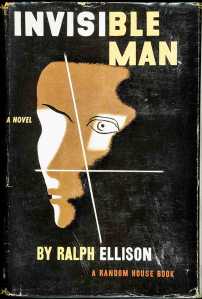 Ralph Ellison – Invisible Man (1952)
Ralph Ellison – Invisible Man (1952)
Born in Oklahoma, Ralph Waldo Ellison attended Tuskegee Institute (“the prestigious all-black university in Alabama founded by Booker T. Washington”) in the 1930s. He was something of a renaissance man, at various times delving into football, trumpet, classic literature, sculpture, and photography. But his most enduring works are his essays, and his classic novel, Invisible Man. In it, he explores issues affecting not only African-Americans, but society as a whole. As his narrator summarizes, “Who knows but that, on the lower frequencies, I speak for you?”
Harper Lee – To Kill a Mockingbird (1960)
I can’t say anything about To Kill a Mockingbird that hasn’t already been said. If you haven’t read it, make it first on your list.
To find even more southern authors worth your time, check out the members of the Fellowship of Southern Writers (https://en.wikipedia.org/wiki/Fellowship_of_Southern_Writers). Their charter members include several authors from this post. You will find modern, influential southern writers among them as well, including Wendell Berry, Kaye Gibbons, and Tony Earley, well worth exploring in addition to the classics listed above. Enjoy!